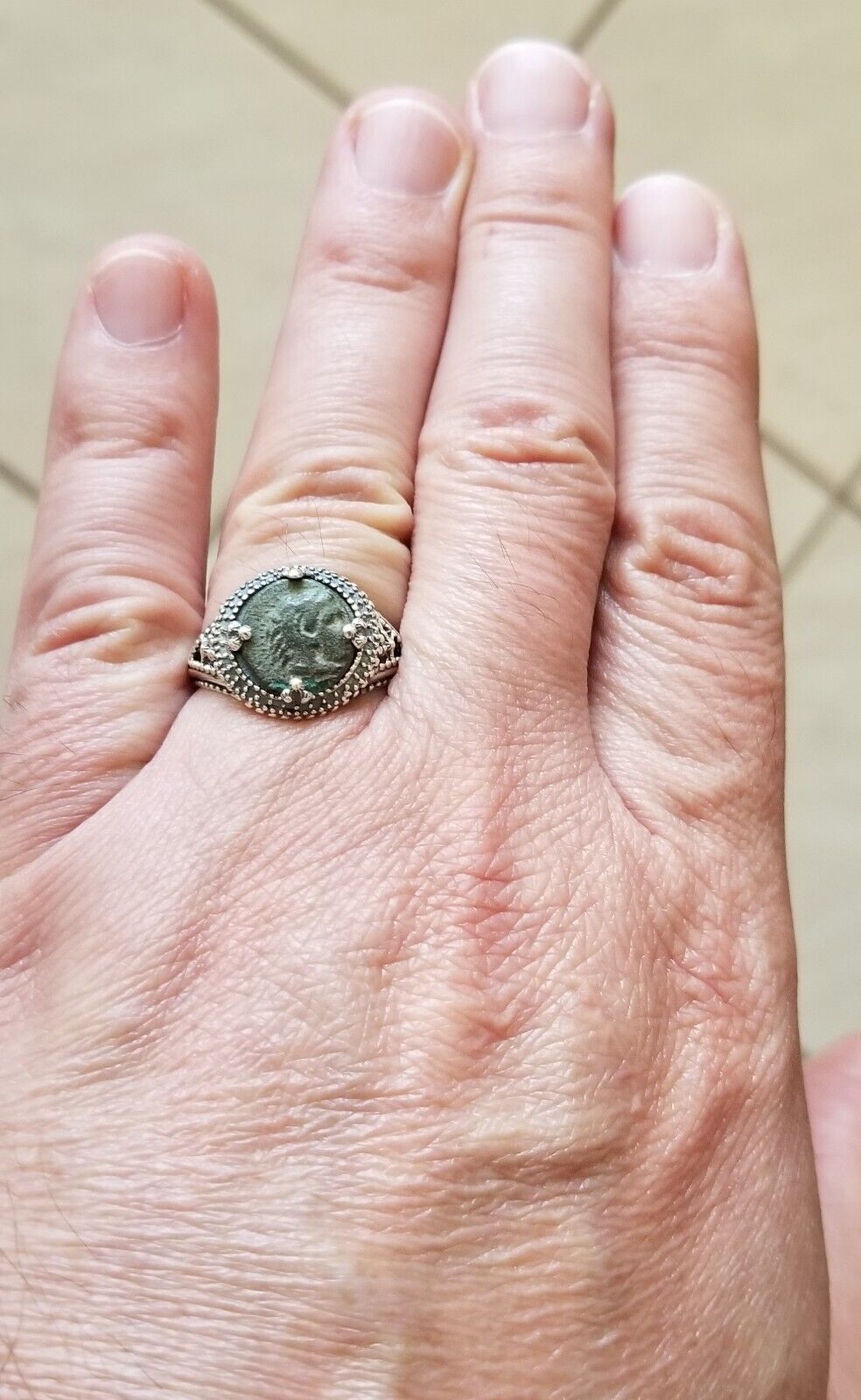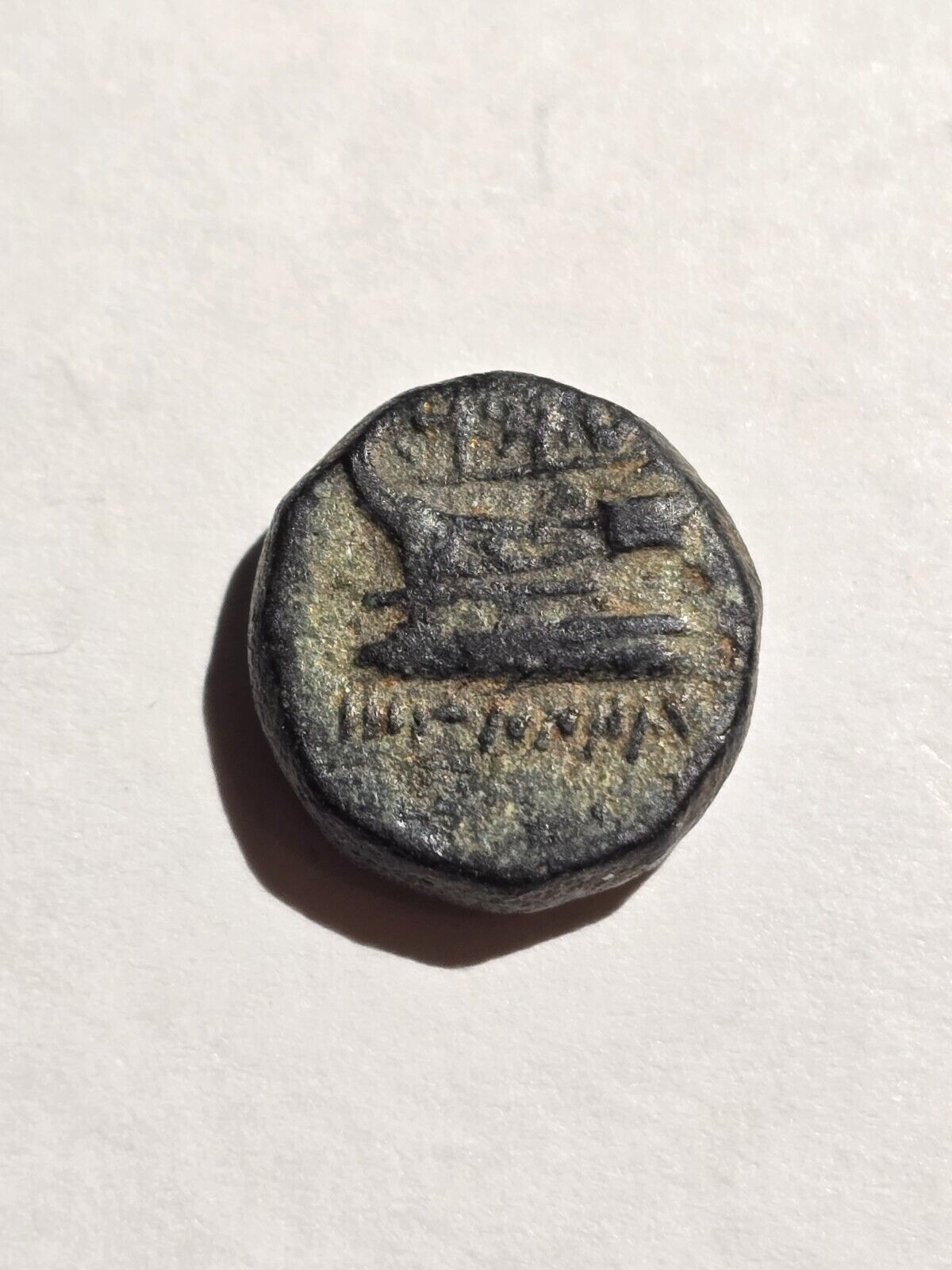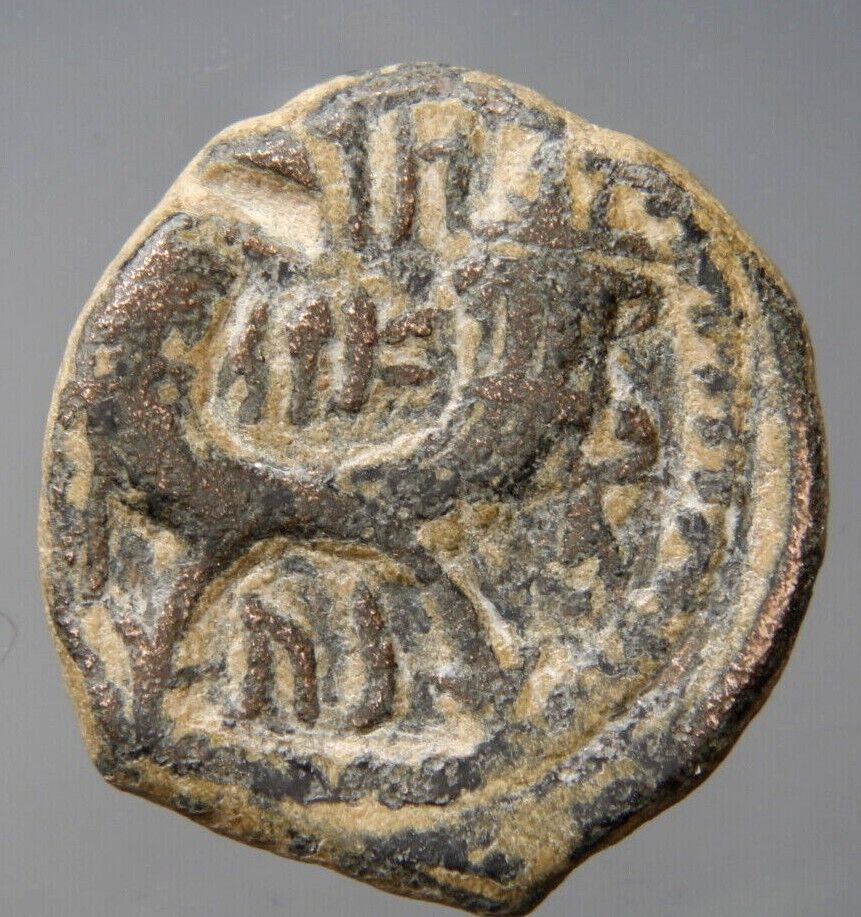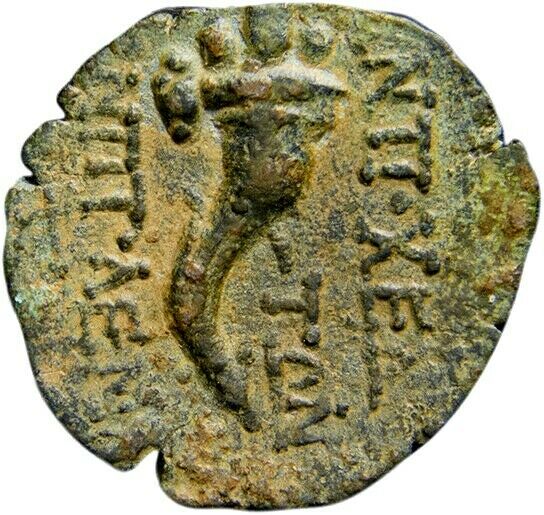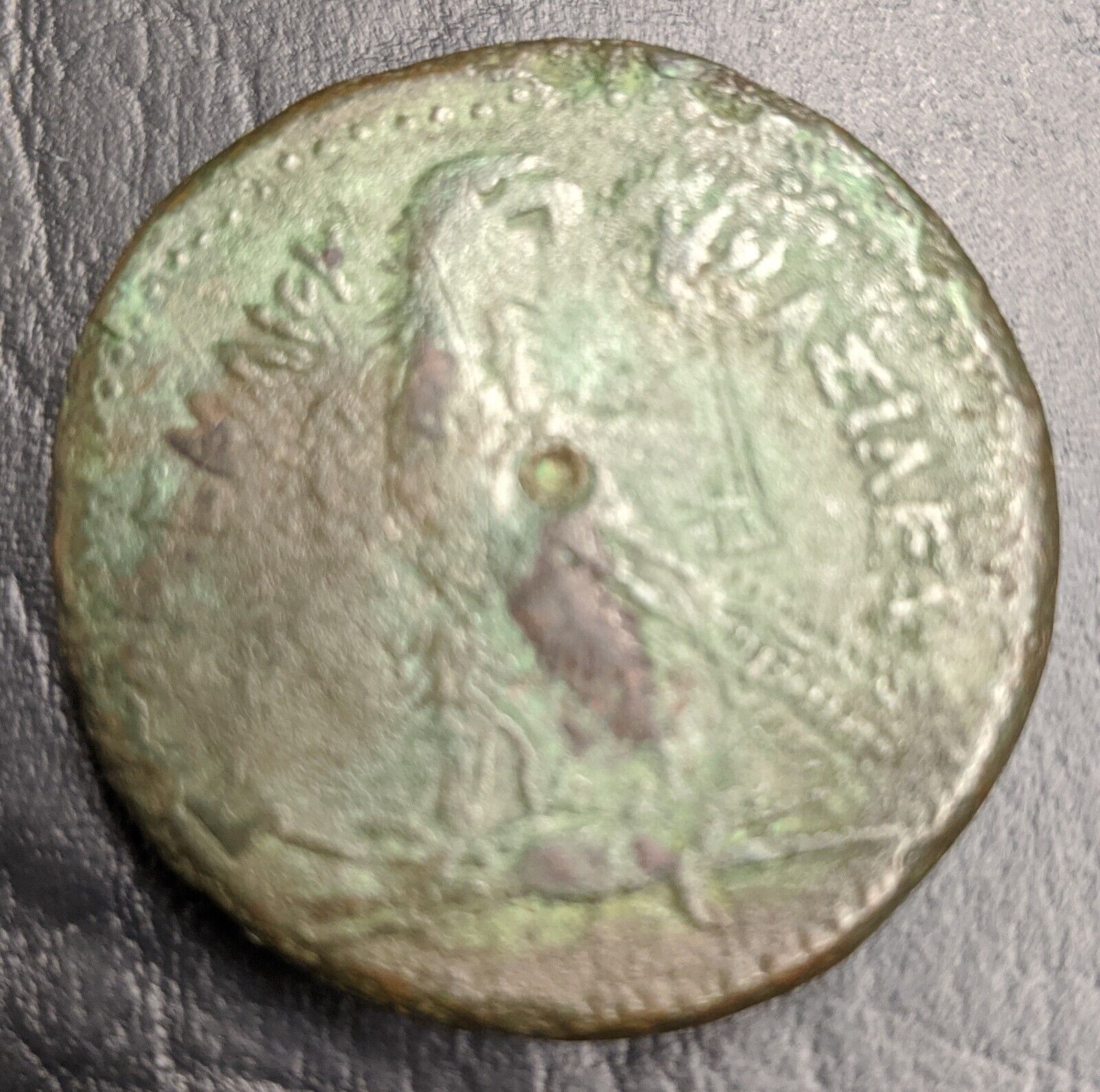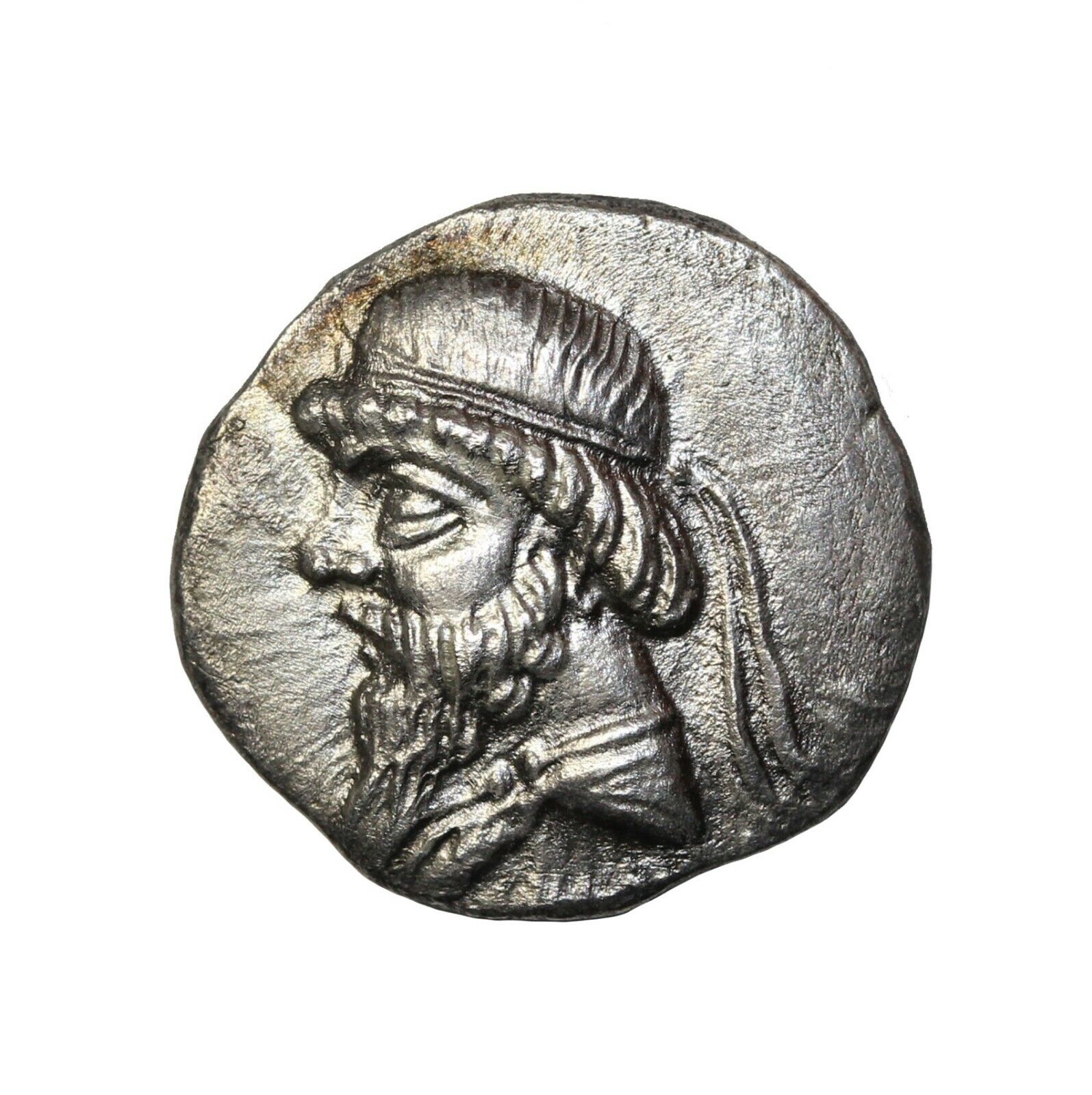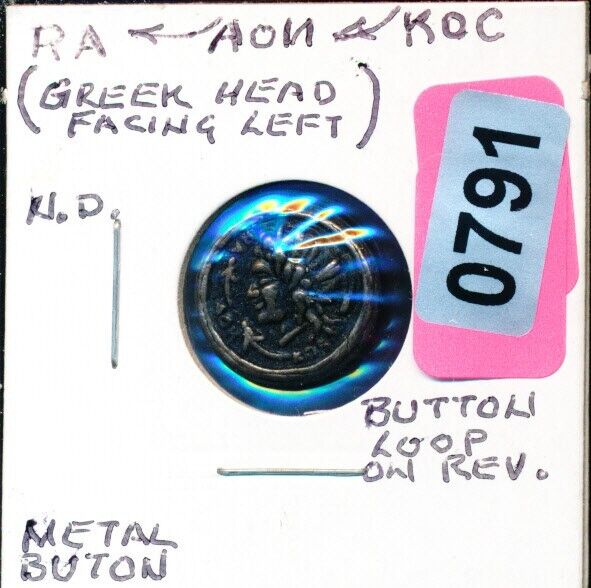-40%
Authentic Ancient Greek Coin Alexander III The Great Solid Sterling Silver Ring
$ 100.31
- Description
- Size Guide
Description
Authentic Ancient Bronze Greek Coin with Alexander III The Great Portrait, set in a 925 Solid Sterling Silver Ring. The ring's size is easily adjustable from the US size 6.5 to 12.5.Bronze AE. Minted in Macedonian Kingdom, circa 4th - 3rd century BC. About 2300 years ago! Obverse: Head of Alexander the Great as Herakles right, wearing lion skin. Reverse:
ΑΛΕΞΑΝΔΡoΥ between club and bow with quiver
. Provenance: Savoca Coins Auction House (Munich, Germany).
Shipping fees: 4.49 (the 50 states), .99 (Worldwide). Thank you for looking.
Historical Facts:
Alexander III of Macedon (20/21 July 356 BC – 10/11 June 323 BC), commonly known as Alexander the Great (Greek: Ἀλέξανδρος ὁ Μέγας, Aléxandros ho Mégas Koine Greek: [a.lék.san.dros ho mé.gas]), was a king (basileus) of the Ancient Greek kingdom of Macedon and a member of the Argead dynasty. He was born in Pella in 356 BC and succeeded his father Philip II to the throne at the age of twenty. He spent most of his ruling years on an unprecedented military campaign through Asia and northeast Africa, and he created one of the largest empires of the ancient world by the age of thirty, stretching from Greece to northwestern India. He was undefeated in battle and is widely considered one of history's most successful military commanders.
During his youth, Alexander was tutored by Aristotle until age 16. After Philip's assassination in 336 BC, he succeeded his father to the throne and inherited a strong kingdom and an experienced army. Alexander was awarded the generalship of Greece and used this authority to launch his father's Panhellenic project to lead the Greeks in the conquest of Persia. In 334 BC, he invaded the Achaemenid Empire (Persian Empire) and began a series of campaigns that lasted ten years. Following the conquest of Anatolia, Alexander broke the power of Persia in a series of decisive battles, most notably the battles of Issus and Gaugamela. He subsequently overthrew Persian King Darius III and conquered the Achaemenid Empire in its entirety. At that point, his empire stretched from the Adriatic Sea to the Indus River.
He endeavored to reach the "ends of the world and the Great Outer Sea" and invaded India in 326 BC, winning an important victory over the Pauravas at the Battle of the Hydaspes. He eventually turned back at the demand of his homesick troops. Alexander died in Babylon in 323 BC, the city that he planned to establish as his capital, without executing a series of planned campaigns that would have begun with an invasion of Arabia. In the years following his death, a series of civil wars tore his empire apart, resulting in the establishment of several states ruled by the Diadochi, Alexander's surviving generals and heirs.
